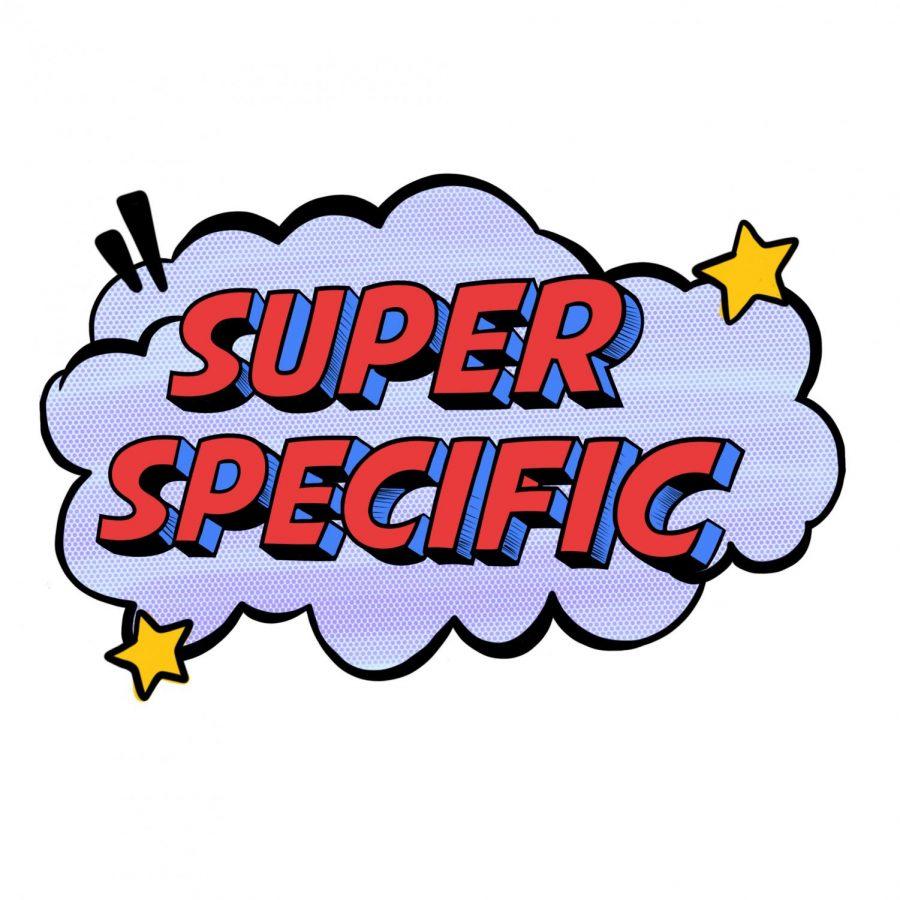Super Specific | “The Old Guard” is the queer superhero representation we need
Super Specific is a bi-weekly blog about superheroes in pop culture.
September 27, 2021
If I had a dollar for every time Disney put out a new big blockbuster movie proudly proclaiming that they have “the first openly gay character, ” I’d have seven dollars too many. And those dollars aren’t worth much.
Let’s be clear, a two second clip of two background characters kissing isn’t acceptable LGBTQ+ representation. Neither is a “gay” Joe Russo’s throw-away line in “Avengers: Endgame,” or LeFou’s murky nondescript look in “Beauty and the Beast.” LGBTQ+ characters deserve to have lead roles. They deserve to have the big kiss and the swoon-worthy love declaration while a building explodes in the background.
The fact is, we have a LGBTQ+ representation problem in our big budget films, particularly superhero movies.
The more immediate problem Marvel and DC has with putting queer characters on the big screen has everything to do with China. China has year-by-year gained more traction in Hollywood’s revenue. They took up $8.66 billion of Hollywood’s big box office revenue in 2018.
China also has a specific media administration to survey foreign films for candidacy in the country. When it comes to depicting homosexuality, while there is no immediate rule against it in China, the topic is sensitive among censors, and more often than not these films are banned in-country.
It is indeed an obstacle, money makes the world go round after all. But film companies can’t use that as an excuse anymore. Marvel’s latest release, “Shang-Chi,” still isn’t approved for screening in China due to a character’s reportedly racist inspiration in the comic and comments from star Simu Liu that supposedly criticized the Chinese government, yet it’s still on track to become the highest grossing movie of the year.
So clearly, studio executives can successfully market and make money on big budget superhero movies that aren’t approved for China, so they can make one with LGBTQ+ leads. The next obstacle is giving these characters meaningful storylines.
I would like to present Netflix’s hit movie “The Old Guard” as a textbook example of how to do so.
Based on the Image comic of the same name, “The Old Guard” tells the story of a group of immortal mercenaries lead by Andromache the Scythian (Charlize Theron) — a 4000-year-old warrior who’s become disaffected with her place in the world.
The movie centers around the induction of a new “immortal” into the group, Nile Freeman (Kiki Layne), and how her newfound immortality puts the group into the crossfires of an egomaniacal CEO.
If you didn’t think watching Charlize Theron swing an axe around was enough incentive to watch this movie, wait until you see the romantic stars of the film. Yusuf al-Kaysani (Marwan Kenzari) and Nicolo di Genova (Luca Marinelli), known by their nicknames Joe and Nicky, share what is quite possibly the most romantic scene I’ve ever seen in my life.
They share a classic enemies-to-lovers backstory, having met 1000 years ago on opposing sides of the first Crusade. After killing one another in battle, they fall in love and spend the next millennia of their lives loving one another all around the world.
And while I could praise the swoon-worthiness of Joe’s van speech for hours, what makes these characters so fantastic is that their development is not simply limited to their relationship.
Joe and Nicky kick ass. They’re front and center at every fight scene. Joe is a poet and an artist. Nicky has a fantastic knack for cooking. In between the heavy action scenes we are given glimpses into the long lives of all these immortal characters, and Joe and Nicky’s lives are just as fleshed out as Andromache’s or Nile’s might be.
When people say they want “good” LGBTQ+ representation, they don’t want to see these characters killed off, ridiculed or shoved aside in favor of a more typical cishet storyline. These characters should be able to live as their authentic selves just as straight characters have been doing on screen for decades.
You don’t have to have to sacrifice one to get the other. It is simply a fact of taking an LGBTQ+ superhero and placing them into a storyline where their opinions — and more importantly their relationships — matter.
There’s plenty of options — Iceman, Mystique or Poison Ivy. Marvel already introduced characters into the Marvel Cinematic Universe who are canonically queer in the comics. Characters like Wiccan and Loki, who in a moment of brief joy earlier this year, explicitly confirmed his bisexuality on-screen.
Kevin Fiege promised more LGBTQ+ representation in the MCU in the future. If he follows through, we can expect some of these depictions in upcoming movies such as “The Eternals” and “Thor: Love and Thunder.” DC is only slightly ahead of them, casually referring to Harley Quinn’s bisexuality in “Birds of Prey.”
Sure you can find queer characters in other film genres, but I’ve seen “Portrait of a Lady on Fire,” and as much as I love me some angst, I want to see a woman kicking baddies through skyscrapers like Superman and kissing her hot girlfriend at the end of the day.
Queer people exist everywhere, not in just in depressing Oscar dramas. We can save the world too.



